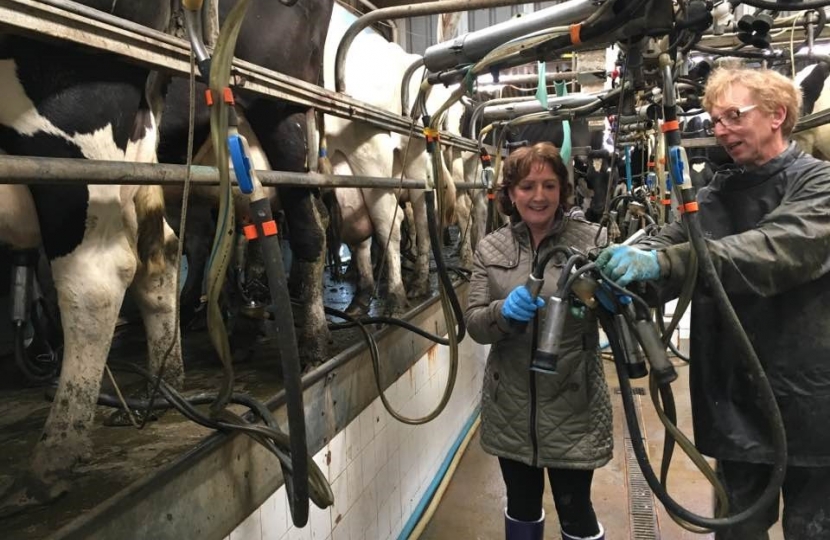
Janet Finch-Saunders AM, Welsh Assembly Member for Aberconwy, has today (21 April) written to Lesley Griffiths AM (Welsh Minister for Environment, Energy, and Rural Affairs) to urge for an ‘ambitious’ effort by the Welsh Government to support the nation’s dairy farmers, struggling as a result of the global COVID-19 pandemic.
Her calls come at a time of increased pressure on the Welsh dairy industry, as the number of dairy producers in Wales continues its downward decline. According to recent statistics by the Food Standard Agency, North Wales has seen the loss of 10 suppliers between April 2019 and 2020.
Among other suggestions outlined in her open letter, Mrs Finch-Saunders has asked the Minister for Environment, Energy, and Rural Affairs to consider:
- Providing access to the Economic Resilience Fund for all in the agricultural sector affected by coronavirus market disruption.
- Exploring public procurement contracts to ensure the NHS, military, and prisons are all sourcing fresh Welsh milk.
- Establish the possibility of the public sector purchasing more milk for consumption by individuals receiving State support, such as hospital patients, the homeless, and children of key workers.
- Assisting with the management of the flows of milk through the supply chain.
Commenting on the situation, Janet said:
“It is truly heart-breaking to hear of farmers having to resort to throwing away milk and losing their hard-earned livelihoods.
“I believe that more than ever there is a need for the Welsh Government to step forward and be ambitious in its efforts to help save the dairy sector from further decline.
“I implore the Welsh Government to explore public procurement contracts to ensure that our NHS, military, and prisons are all sourcing fresh Welsh milk. We should also establish the possibility of the public sector purchasing more milk for consumption by hospital patients, the homeless, and children of key workers.
“By supporting dairy farmers, you continue to back our rural communities. Their role as contractors and rural job providers is too important to ignore. To fail to support these essential key workers in this time of great need would have a far-reaching and devastating impact on rural Wales.
ENDS

